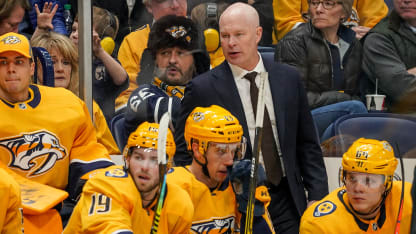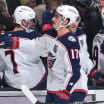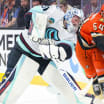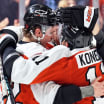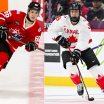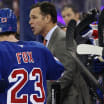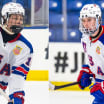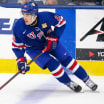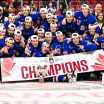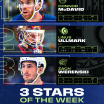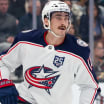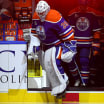The numbers suggest that personnel tweaks to the power play and penalty kill could vastly improve the team, which otherwise has good underlying numbers. The Predators rank sixth in 5-on-5 shot attempts differential (plus-195), suggesting they control possession at even strength. The Predators are also tied for the fourth-best 5-on-5 shooting percentage (9.4 percent). Their 19th ranked 5-on-5 save percentage (.915) can be improved, but it's worth pointing out it's better than the Vegas Golden Knights (.912), Carolina Hurricanes (.912), Edmonton Oilers (.908) and Philadelphia Flyers (.907), who are all currently in a playoff spot.
The Predators rank fourth in face-off win percentage this season (52.4) which highlights that they are controlling possession from the circle, which ultimately benefits their goalies. Any improvement in that area would have minimal impact on their goalies. Hynes could instill more of a shot-blocking culture to the Predators, who rank 22nd in the category (562), but judging by the fact that the Pittsburgh Penguins, Toronto Maple Leafs, Boston Bruins, Winnipeg Jets, Tampa Bay Lightning, St. Louis Blues, Philadelphia Flyers and Carolina Hurricanes all having blocked fewer shots, there seems to be no correlation to blocked shots and winning.
One bold suggestion for Predators to consider is pursuing help in net with one of the potential 2020 unrestricted free agent goalies. Robin Lehner of the Chicago Blackhawks fits that mold and ranks first in shorthanded save percentage (.932) among goalies to play at least 20 games. Regardless of whether the Predators seek outside help, cleaning up the special teams will be one of coach Hynes' biggest focus points.
